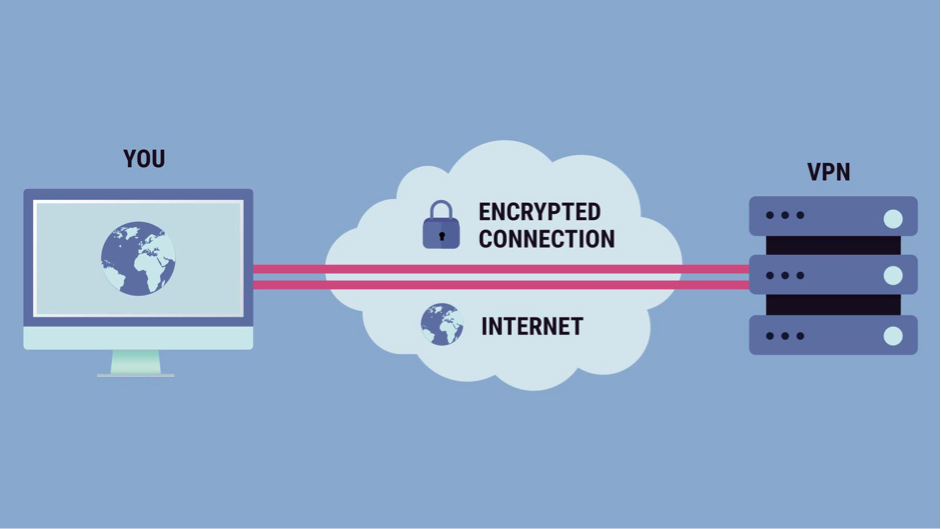You’ve probably seen advertisements for them (both online and in traditional media), but VPNs remain a mystery for many. Otherwise known as Virtual Private Networks, these systems are quickly becoming an indispensable part of the internet experience for users the world over. So, what exactly are VPNs and what is it that makes them so important for privacy, access, and online gaming?
What Do They Do?
Virtual Private Networks are, in simple terms, relay systems. In practical terms, these trick your connected device into thinking that it is accessing the internet from a different location. This can be as close as a nearby city, to as far away as the other side of the world. If you’ve ever seen a film where a hacker bounces a signal around many countries, it’s kind of like that, only with fewer complications, and entirely legal.
This allows many advantages to the end-user, which regular forms of internet access do not. Key among these are security, anonymity, and greater levels of access.
Security comes from the fact that many of these systems have inbuilt guards to protect their users against a range of digital harms. As thebalance.com explains encryption is one of the most important components here. This scrambles data sent to and from a device, meaning that anyone attempting to spy on activity cannot legibly read the details.
When it comes to anonymity and means of access, VPNs have become a solution to many common problems. One of the more common examples of this can be seen through the casinos at elarabcasino.com This website handily lists many of the best deals available in Arabic. However, there is an issue with access in some Arabic countries; VPNs get around this issue, allowing connections to these websites no matter where the player is physically located.
In fact, there are quite a lot of online casinos that are exclusively restricted to players from certain countries. In some instances, this is due to the individual policies of the casinos themselves. In others, it could be that certain types of online gambling (or the specific services of the casino in question) are illegal in the country in question. VPNs can be used to hide your location and effectively ‘pretend’ you’re positioned elsewhere. Doing so could potentially break the law (or contravene the terms and conditions of the online casino), but it is nonetheless a popular practice worldwide.
Another popular use in this regard is for streaming services like Netflix, Hulu, and Amazon. While these services are available in many different countries, they also limit their available content depending on exactly where the user is located. Sometimes this can mean different shows are available – other times it can lead to a huge reduction in available entertainment.
By using a VPN, users can easily set their location to an area with better choice (usually the US), so they can get the most out of the service which they pay a monthly fee for.
Is a VPN Right for You?
Deciding on whether you should use a VPN means looking at where you are and what you want to do with your time online. As issues regarding online safety only grow over time, and increased corporate-led legislation increasingly harm consumers, VPNs have only grown in importance.
As theverge.com reports, developments like the repeal of Net Neutrality in the US have proven incredibly harmful to consumers, and this could easily be just the tip of the iceberg. Using a VPN means ignoring a whole host of hurdles and issues that the less than scrupulous have created. As prices continue to drop and coverage continues to expand, these are a technology to watch.
Technically speaking, strategic use of a VPN can significantly boost your safety, privacy and anonymity online. Nevertheless, it is important to remember that activities you undertake online that are considered illegal or unethical could still be recorded by the VPN provider. A VPN cannot and will not shield you from the consequences of illegal activities – you could still be held accountable for your actions.
It’s therefore important to consider what exactly you intend to get out of your VPN, before signing up for one. In any case, the vast majority of decent VPN brands on the web right now offer free trials of the more basic versions of their software. You can see how they work, before handing over any cash.
What About a Free VPN?
Carry out a quick Google search for a VPN and you’ll find dozens, maybe even hundreds of free web-based VPN services. Rather than downloading software directly to your computer, it’s a case of using a web-based VPN built into a website.
The way it works is relatively simple. You access the website, type in the URL you intend to access and the website relays your request through one of its servers. Some have extensive networks of international servers, others focus on one specific country or jurisdiction. You gain access to the website or online service accordingly, appearing to have made the request from a different location.
Unfortunately, the vast majority of free VPN services are not particularly safe, fast or reliable. By accessing a free VPN website and using the services provided, you effectively consent to the website monitoring and logging your activities. Hence, anything you get up to that isn’t legal in your jurisdiction could come back to haunt you. In addition, free VPN performance is usually too limited to be of any use with things like streaming media or casino gaming.
Last but not least, viruses and malware in general are rife with these kinds of services.
Irrespective of whether you choose to go with a free or paid VPN, use customer reviews and recommendations as a basis for your decision. A quality VPN can open the door to an exceptionally versatile and enjoyable online experience, though doesn’t mean you can do anything you want and get away with it.
As usual, common sense is key.
You might also find the following articles interesting:
- 10 Tips to Improve Your Online Gambling in 2019
- 15 Ultra-Expensive Meals You’ll Probably Never Taste
- 5 Crazy and Cool Facts about Online Gambling













